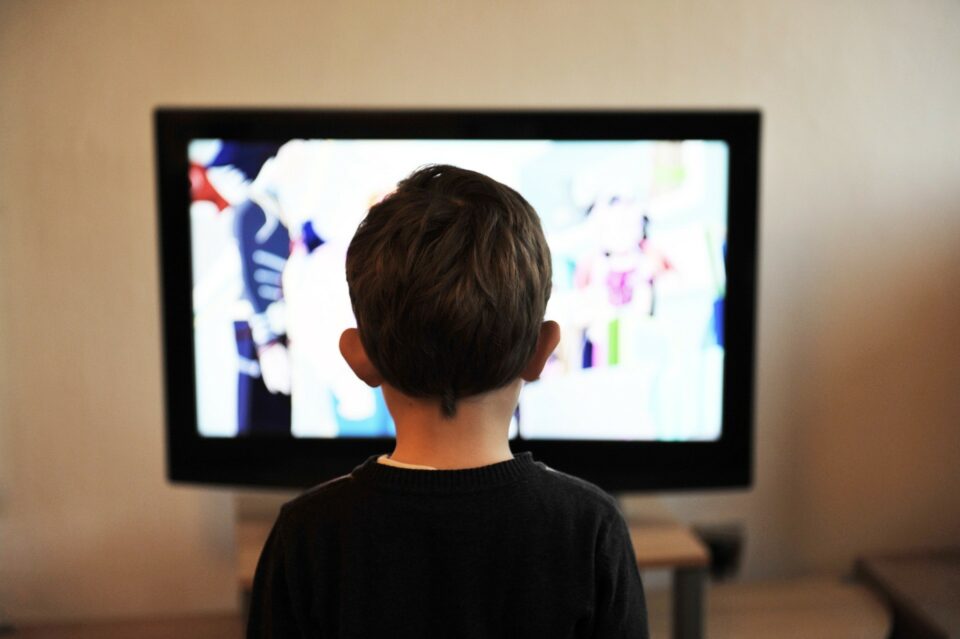During the COVID-19 pandemic, children have found themselves learning from home.
At first, this probably seemed quite the dream, but then after a while, the reality of the situation set in. Your children are missing out on a lot during the pandemic; they’re missing their friends, quality of education, and they’re missing the camaraderie that comes from being in a classroom with students and a teacher.
Of course, learning from home still means that your child is getting an education, but it’s certainly not the preferable option here. Motivation can be a huge issue. Motivating your child to work and learn in a room that they usually eat dinner in or play with their toys in can be very distracting and in some cases, it can cause them to not be able to concentrate or take in what you’re trying to teach them.
There’s no denying that home schooling is also very stressful for parents too. You’re not a teacher and suddenly you’ve been taxed with the role of being a teacher and motivator to your child. It’s also possible that your child doesn’t take you seriously as a teacher at first, and that in itself is a huge challenge.
With all of this in mind, let’s look at a few tips to help enhance your child’s at-home education.
Keep a Routine in Place
It’s important to have a routine, as much as possible. When children are in the classroom, they’re in a routine. Their teacher does certain things with them at certain times, and that’s because it helps children feel secure and safe, and that they’re far more likely to focus and learn in that situation.
When home schooling, set a routine of getting up at the same time, having breakfast, your children getting dressed for school, and have set time slots for certain lessons. Don’t forget play times too – these are important for breaks and to ensure that your children soak up the knowledge you’re trying to impart upon them.
If you notice that your child is struggling to focus, mix up the routine just a little. Don’t change it wildly, but do add a little flexibility into proceedings. This will ensure that they stay entertained whilst learning and they don’t accidentally “switch off”.
Encourage Your Child to Talk
Your child knows that you are not their teacher and they don’t see you in that role. You are their caregiver and as such, they may find it hard to switch between positions. Encourage your child to talk to you about how they’re feeling when it comes to their education.
It’s also very important to avoid becoming stressed. It’s easy to do so, because as mentioned before, you’re not a teacher and you’ve been thrown into that role. However, a stressed reaction isn’t going to help your children to feel calm and isn’t going to engage them in their lessons. Avoid stress and instead talk in an age appropriate and constructive way. It’s important that your child feels they can talk to you about anything they don’t understand or if they’re struggling with a particular aspect of a subject.
Use Shorter Lesson Times
You might think that having one long lesson will get the job done for both of you and free you up to carry on with the day, but that’s not the optimal way for your child to learn. It’s far better to have short lessons and if you need to build up, add ten minute increments. Start off with half an hour and build up to around 45 minutes or an hour, if your child’s concentration is working well.
In addition, make sure you switch up educational measures, such as online games and apps, videos, and songs, etc. If you stick to just theory-based work, your child is quickly going to become bored. However, if you’re using anything online-related, make sure that your child is protected at all times and that you use child safety measures.
Check in With Your Child’s Teacher
You can easily stay in touch with your child’s teacher or school generally and ask for advice. Schools know that parents are under a lot of stress and pressure right now and nobody expects you to handle everything alone. Don’t be afraid to seek guidance and ask for tips. It’s also likely that friends with children are also feeling the same pressure, so seek support together and swap tips.
Every child is different and that means you need to work in a way which your child suits. You know your child better than anyone and you know how they’re going to respond to certain stimuli. That means you can work in a way which they’re going to respond to.
Give Praise And Encouragement
Remember to give praise when praise is due and don’t just keep churning out lessons in an attempt to just tick them off a list. A little encouragement can really be the difference between your child putting in the effort and switching off and refusing to work.
The problem with home schooling is that a child is very unlikely to tell their teacher that they don’t want to do the work or that they’re not going to. However, they will have no problems telling you the same thing as their parent! Praise when they do well and encouragement along the way will help them to keep going and to do the lessons they need to do.
Have a Place For Work
Choose one spot that is to be used for lessons and don’t move from there. A little earlier we mentioned the importance of routine but having one place for work is also important. This means that your child will get into the right mindset when they’re in that spot and they will be less distracted.
A good place for lessons is the dining room table or the kitchen table. This means they’re away from the TV and they’re not going to be distracted by whatever is on the screen. In addition, don’t have the TV on during home schooling times as your child will just want to run into the other room and find out what is happening.
Make sure the space is comfortable and that you have exactly what you need laid out for the lesson. This will make everything run far more smoothly from the get-go and keep both of you calm and motivated.
Encourage Your Children to Discuss Lessons With Their Friends
Your children are missing out on socialisation at this time but the good news is that we have video calls to make up for it. Encourage your child to talk to their friends about their lessons and almost compare notes. This means that they’re not worried about falling behind and they’re going to feel a little like they’re at school with their friends, although they’re not.
When your children play with their friends at school, it’s not just leisure time, although that’s important too. It’s them developing their social skills and their motor skills through active play. Make sure that you give them plenty of play opportunities and allow them to socialise with friends as much as they can, even if that is virtually.
Talk to Them About What is Happening
It’s very important that you talk to your child about what is happening and keep them up to date. It’s easy for them to worry and not want to talk about it, but by explaining that for the time being there is going to need to be a certain amount of home learning going on until things normalise, they’ll know that you’re not holding anything back from them.
When schools do open, it’s also important to prepare your children for re-entering the classroom. There are going to be certain rules in place, such as mask wearing and social distancing and all of this can be worrisome for children. By explaining what is going to happen and reassuring them about why these measures are in place, they’ll transition back into their school setting far easier and with much less stress and worry.
At the end of the day, much of it comes down to communication. Your child is not blind to what is going on in the world and the fact they’re not in school means that they know something is very, very wrong. By maintaining open lines of communication and encouraging them to ask questions and voice their emotions, you’ll make the whole situation easier for your child. Of course, when things are easier for your child, life is easier for you too!
Motivation can be lacking in a home schooling situation and it’s easy to slip into the routine of not doing as much as you should. As their stand-in “teacher”, it’s your role to encourage and motivate your child to do their work and stay as up to date as possible. If you need support in that role, don’t hesitate to reach out.




